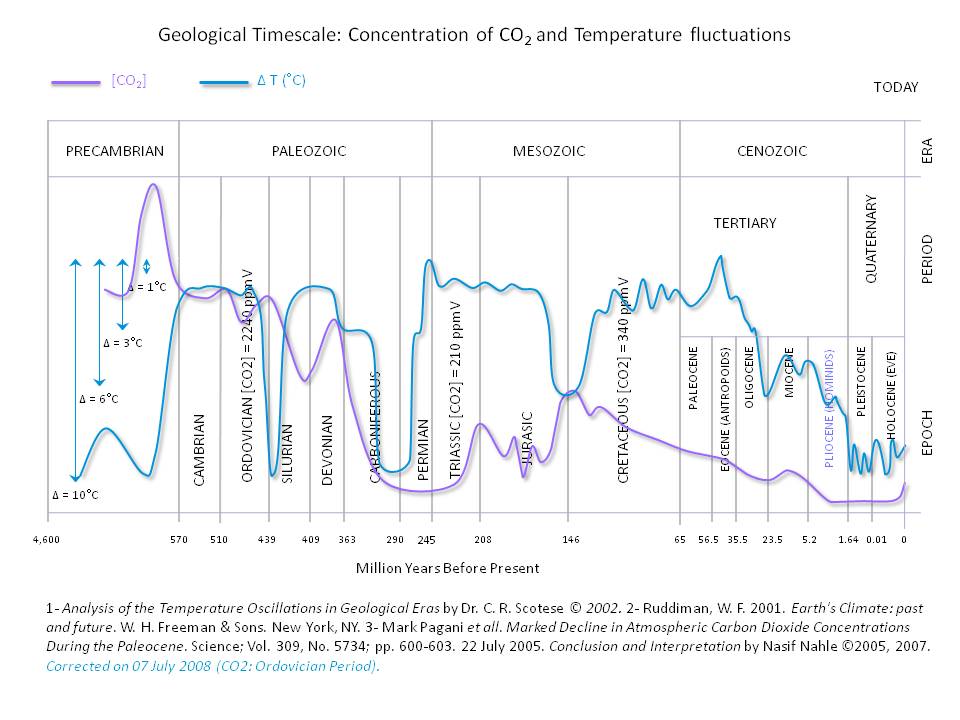It looks like you're using an Ad Blocker.
Please white-list or disable AboveTopSecret.com in your ad-blocking tool.
Thank you.
Some features of ATS will be disabled while you continue to use an ad-blocker.
1
share:
This is an important new study linking higher carbon dioxide levels in the world's ocean to the effects on the brains and central nervous systems of
fish. This research may help show the damage that high levels of carbon dioxide have on our planet.
news.discovery.com...
news.discovery.com...
Rising human carbon dioxide emissions may be affecting the brains and central nervous systems of sea fish, with serious consequences for their survival, according to new research.
Carbon dioxide concentrations predicted to occur in the ocean by the end of this century will interfere with fishes' ability to hear, smell, turn and evade predators, the research found.
The Australian Research Council's Center of Excellence for Coral Reef Studies said it had been testing the performance of baby coral fish in sea water containing higher levels of dissolved CO2 for several years.
"And it is now pretty clear that they sustain significant disruption to their central nervous system, which is likely to impair their chances of survival," said Phillip Munday, a professor who reported the findings.
In a paper published in the journal Nature Climate Change, Munday and his colleagues also detail what they say is world-first evidence that high CO2 levels in sea water disrupts a key brain receptor in fish.
"Our early work showed that the sense of smell of baby fish was harmed by higher CO2 in the water, meaning they found it harder to locate a reef to settle on or detect the warning smell of a predator fish," said Munday
The research also showed that the fish also tended to lose their natural instinct to turn left or right -- an important factor in schooling behavior.
"All this led us to suspect it wasn't simply damage to their individual senses that was going on, but rather that higher levels of carbon dioxide were affecting their whole central nervous system."
reply to post by isyeye
Fish brains? I wonder where they get their funding. Most likely from someone with an agenda... Looks like someone probing for excuses to infer carbon tax so... Government funded perhaps?
Fish brains? I wonder where they get their funding. Most likely from someone with an agenda... Looks like someone probing for excuses to infer carbon tax so... Government funded perhaps?
Good find and interesting article, but I agreed with NeoVain it does look a little "fishy".
Big inconsistency in the theory about they pray/predator relation.
How come the predators can see and find their pray if the pray cant see and navigate away from predator, why does it only affect they prey??
The amount of carbon dioxid in the atmosphere is "historical low" if you look at a timeframe of 600 million years. Fish existed for atleast 450 million years.

(This graph also shows that the relation between temperature and carbon dioxid may not be as the climate gurus preech.)
Meet the cleantech VC who is unconvinced of man-made climate change
Big inconsistency in the theory about they pray/predator relation.
How come the predators can see and find their pray if the pray cant see and navigate away from predator, why does it only affect they prey??
The amount of carbon dioxid in the atmosphere is "historical low" if you look at a timeframe of 600 million years. Fish existed for atleast 450 million years.

(This graph also shows that the relation between temperature and carbon dioxid may not be as the climate gurus preech.)
Meet the cleantech VC who is unconvinced of man-made climate change
edit on 16-1-2012 by Mimir because: (no reason given)
new topics
-
Paradox of Progress
Ancient & Lost Civilizations: 4 hours ago -
Joe Biden gives the USA's Highest Civilian Honor Award to Hillary Clinton and George Soros.
US Political Madness: 6 hours ago -
Winter Storm
Fragile Earth: 7 hours ago -
Biden Face Planted Somewhere
Politicians & People: 9 hours ago -
A great artist and storyteller, for kids of all ages
General Entertainment: 9 hours ago
1
